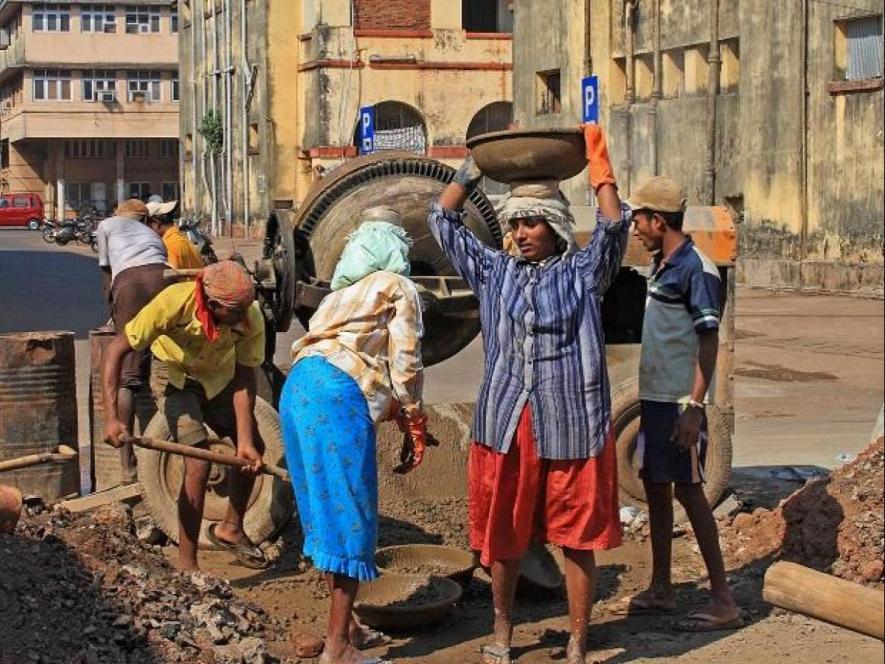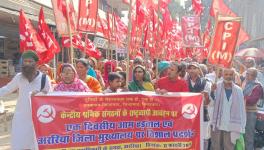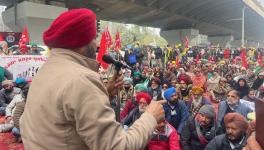Protection for Journalists Under Threat Under New Labour Code

Representational image. Image Courtesy: Business Standard
New Delhi: The Narendra Modi government has stripping workers of their hard-fought rights under law – earned through decades of struggle – all in the name of ‘ease of doing business’. Among those affected by the onslaught on their rights are journalists, who have been facing ‘hire and fire’ and massive lay-offs for quite some time now, mainly due to rising contracterisation of jobs in the sector.
The attack on journalists’ rights is set to face another major blow, as the Centre proposes to do away with the constitution of a wage board – tasked with devising a permanent wage fixation machinery – along with axing the protections that were designed to protect the media. A large number of vernacular media houses are still covered by the wage board, though these too are fast moving to contractual employment..
The abolishing of the wage board will be achieved through the passage of one of the three labour code Bills, tabled in Parliament last week, and were scheduled for consideration in Lok Sabha on Tuesday.
The Occupational Safety, Health and Working Conditions Code Bill, 2020, seeking regulation of health and working conditions in economic activities, subsumes among others two Central labour enactments that were aimed at safeguarding working journalists in the newspaper industry.
The Working Journalists and other Newspaper Employees (Conditions of Service) and Miscellaneous Provisions Act, 1955 was enacted with a purpose “to have a uniform law” relating to the service conditions in newspaper establishments – enlisting norms and a provision to set up a wage board. Correspondingly, The Working Journalists (Fixation of Rates of Wages) Act, 1958 was the law providing for the fixation of rates of wages.
Certain legal protections included in these legislation remain absent in the OSH&WC code Bill, which if passed will replace both laws.
For instance, retrenchment norms under the 1955 Act required the period of notice served to be for six months in the case of an editor, and three months in the case of any other working journalist – providing greater protection to a section of fourth pillar of democracy than other workers. This special provision has, however, been dropped in the proposed code Bill, under which only one months’ notice will be required.
Similarly, protections to the working journalists in print media with respect to recovery of money due from the employer also find no mention in the code Bill.
AM Jigeesh of Delhi Union of Journalists (DUJ) says that the 1955 Act was crucial in charting out a tripartite arrangement, that included media house management, government and working journalists. It provided legal protection to journalists against arbitrary retrenchments, he said.
“That included even those who had entered into a contract with the management,” Jigeesh, a senior journalist with The Hindu Business Line, told Newsclick.
The said code also speaks nothing about the long overdue wage board – last formed back in 2007 in what came to known as ‘Majithia Wage Board’ – suggesting the eventual scrapping of the whole idea itself.
The dilution of the Working Journalists’ Act must be looked at as a “paradigm shift” in safeguarding press freedom, says Jigeesh, adding that though contending that its scope was only restricted to the print industry, and failed to cover the electronic media that rose in the 1990s under the shadow of a liberalised economy.
The code Bill, however, addresses this limitation by including “other establishment relating to any electronic media or digital media,” within the definition of a ‘working journalist’.
But even then, certain recommendations made by journalists’ unions, including formation of an autonomous media commission and replacement of the “outdated” Press Council, to the Parliamentary Standing Committee on Labour, have also not been considered by the Modi government.
The OSH&WC code Bill in total amalgamates 13 Central laws. The Bill has been introduced under Article 117(1) of the Indian Constitution, rendering it to be a ‘financial Bill’. Consequently, it gets introduced only in Lok Sabha.
The code, “seeks to consolidate and amend the laws regulating the occupational safety, health and working conditions. However, it excludes many branches of economic activities,” rued Working Peoples’ Charter, a coming together of organisations working in the informal sector, in its briefing note,
Meanwhile, 10 Central Trade Unions have given a ‘National Protest Day’ call on September 23, to press for the scrapping of the labour code Bills, which also include The Industrial Relations Code Bill, 2020 and The Code on Social Security Bill, 2020.
DUJ President SK Pandey told Newsclick that any protest action against the labour codes would be fully supported by the journalists’ body in the national capital.
Get the latest reports & analysis with people's perspective on Protests, movements & deep analytical videos, discussions of the current affairs in your Telegram app. Subscribe to NewsClick's Telegram channel & get Real-Time updates on stories, as they get published on our website.























